Every Marvel Disney+ Series Ranked From Worst to Best: The Marvel Cinematic Universe was here to stay with the release of Iron Man (2008), and ever since, Marvel Studios has made strides to revolutionize the way superhero stories are told on the big screen. If the studio’s shift into episodic storytelling following the events of the monumental Avengers: Endgame (2019) was any indication, not even the wrap-up of a decade’s worth of storytelling, or the loss of some of Earth’s Mightiest Heroes, was enough to keep this universe from expanding into new and exciting territory.
Although the presence of the MCU on a much smaller, serialized scale feels like a mainstay at this point, it’s easy to forget that Marvel’s success in this venture was far from guaranteed. However, with the franchise currently in its fourth phase, the studio’s Disney+ originals have proven to be just as entertaining as their theatrical endeavors, likely because they’ve provided some much-needed attention to characters who were relegated to supporting status during the first three phases’ Infinity Saga. With many of Phase Four’s films demonstrating a certain sense of trial and error on the part of filmmakers struggling to decide what stories to tell in the wake of Thanos’s defeat, the Disney+ originals have done much to pick up the slack.
Even though the host of new material has meant that greater attention is required on the part of fans if they are to fully comprehend the universe’s overarching narrative, it’s nevertheless been a treat to see the franchise continue to prosper with the seven series we’ve already been blessed with. With Marvel’s latest original series, Ms. Marvel (2022), recently finishing up its six-episode run, and with other small-screen continuations like She-Hulk: Attorney at Law (2022), The Guardians of the Galaxy Holiday Special (2022), and Secret Invasion (2023), on the horizon, it’s time to rank every Marvel Disney+ series from worst to best.
Please note: this ranking only discusses series released by Marvel Studios and will not include series released by Netflix or Marvel Television on the ABC network.
7. What If? (2021- )
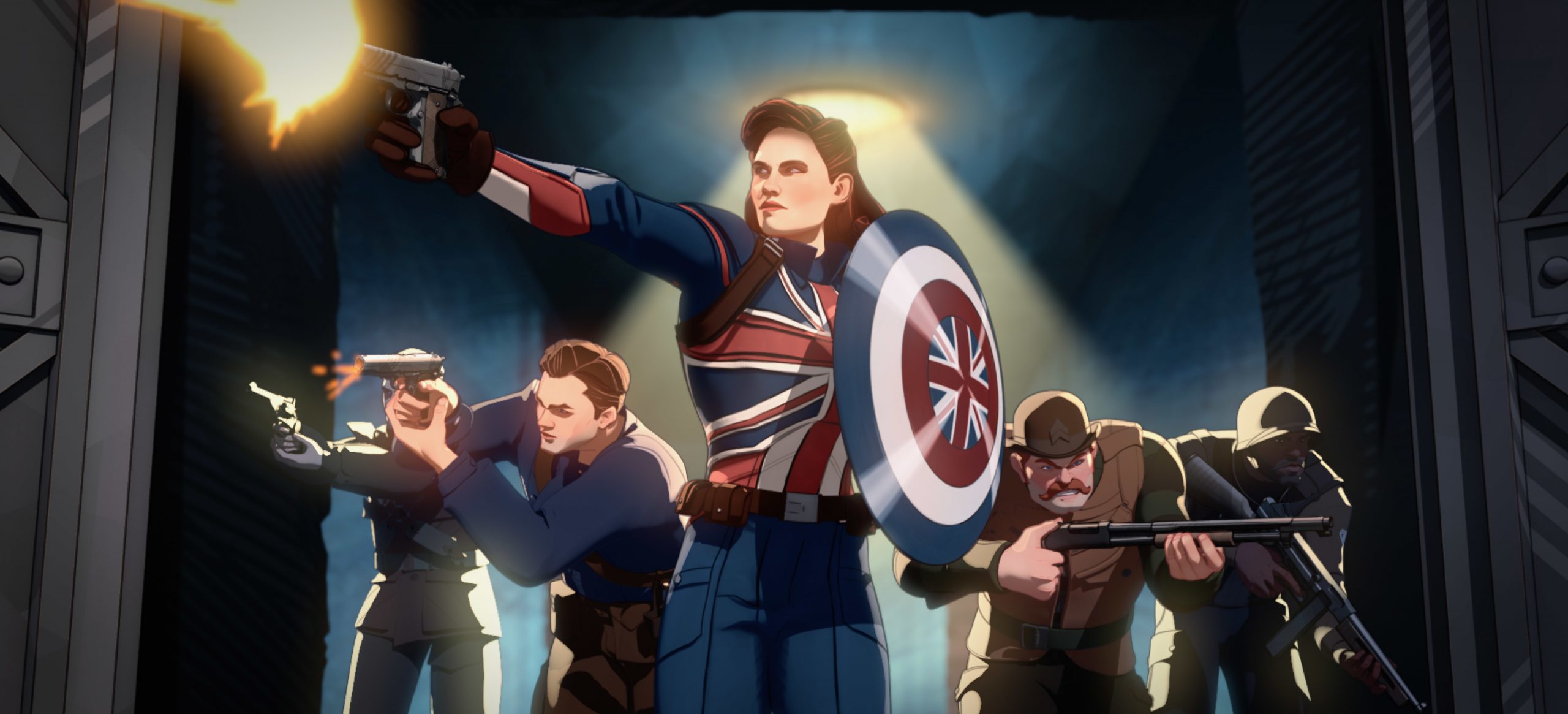
Let’s preface what’s to follow by stating that none of the series produced by Marvel Studios post-Endgame have been bad. Quite the contrary. However, if we had to bring balance to the universe by sacrificing one of these shows, What If? would be the obvious choice. It’s altogether surprising considering everything the show has going for it: it’s the studio’s first foray into animation, it has a multitude of unique storylines to work with, not to mention a multiverse of endless potential, and it gave us an inspired vocal performance from Jeffrey Wright as the omnipresent Watcher. What If? delivered on many of its promises, as it captured quite a few interesting reversals of MCU plotlines devotees are surely familiar with. Among the standouts are Doctor Strange’s turn to the dark side, the murder mystery that sees Earth’s Mightiest Heroes getting picked off one by one, and the galactic adventures of T’Challa/Star-Lord, the latter of which is worth watching just to see the late Chadwick Boseman’s final performance as the character.
Of the shows on this list, What If? was arguably the most highly anticipated across the Marvel fan community, and, unfortunately so, it’s also the one that buckled the most under the weight of its own ambition. From the one season we have, just over half of the episodes were great while the other half were resoundingly fine. As an anthology series and introduction to the multiverse, it thankfully allows the viewer to pick and choose which episodes and characters they latch onto without much continuity getting in the way. On the downside, What If? is frequently held back by its refusal to exercise the intrigue of the multiverse the way it should, with a few episodes concluding before their stories really begin. Plus, because it mainly shines its light on the Infinity Saga’s major players, too often does the show change their fate without providing any significant changes in depth or character along the way.
6. Loki (2021- )
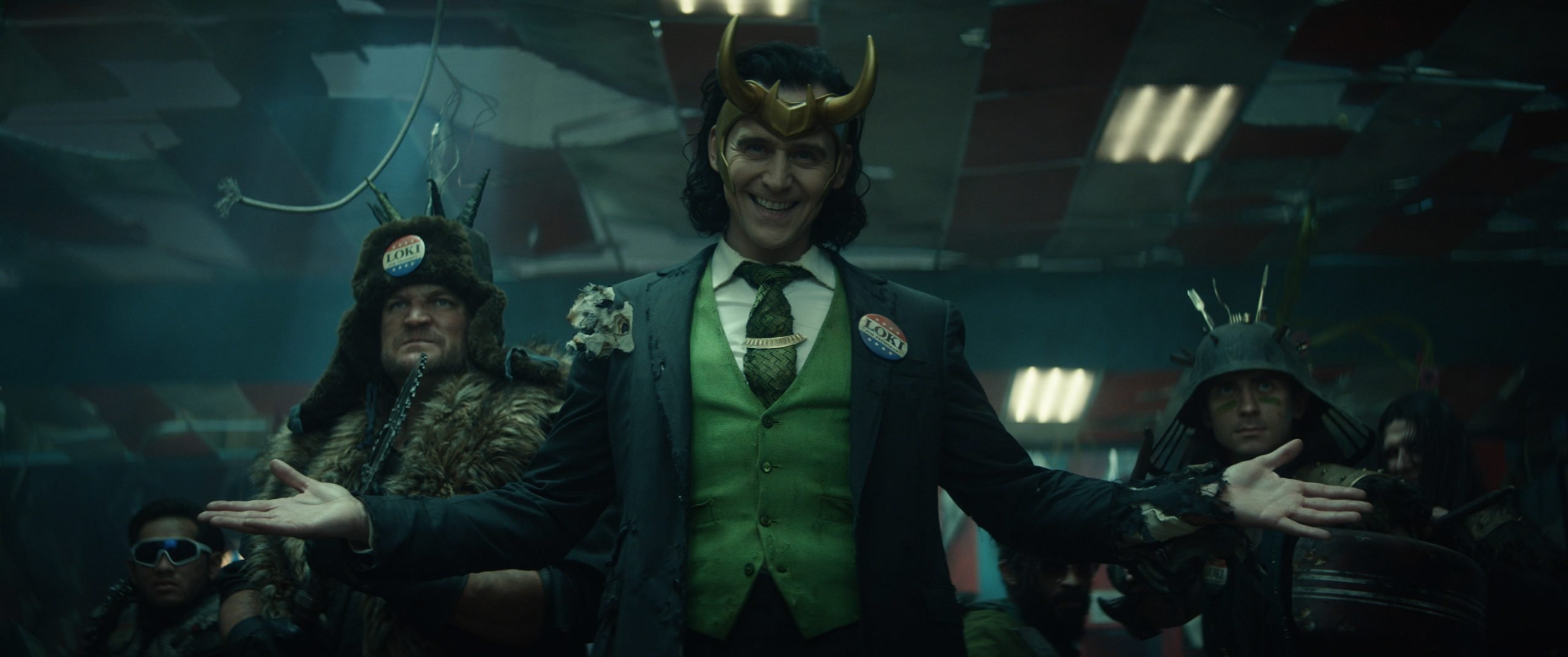
Tom Hiddleston’s Loki is undoubtedly one of the brightest spots in the entire MCU. Between his shifting loyalties, a great sense of humor befitting a God of Mischief, and Hiddleston’s effortless charm, it’s no wonder why the character is such a fan favorite. This only makes the series centered around him that much harder to embrace. The cliffhanger at the end of its first season makes clear that Loki is far more concerned with setting up plot details for the rest of Phase Four than it is with letting the title character wreak havoc once more after his cruel and unjust fate in Avengers: Infinity War (2018). To be fair, Loki remains exciting in the way its introduction of the Time Variance Authority is used to set up the multiverse while creating a refreshing diversion from the typical Marvel storyline. All the while, Hiddleston, as expected, shifts between villainous trickster and earnest antihero with ease, playing Loki with a mix of bewilderment and arrogance that more often than not reflects an audience mistakenly believing they know everything there is to know about this universe.
Following the demigod, as he assists TVA Agent Mobius (Owen Wilson) in balancing the timeline by hunting down a variant of himself through time and space, the concept alone inevitably inspires positive comparisons to shows like Quantum Leap (1989-1993), Doctor Who (2005- ), and the ever-underrated Timeless (2016-2018). In execution, however, Loki’s exploration of time lacks just that: time. With only six episodes, the first season sadly underserves Loki when an extra two or three would have been sufficient enough to re-develop his character. Given that this particular Loki has recently tried to take over the world before being thwarted by the Avengers, his growth feels highly unearned in comparison to the six years of rectification that fans witnessed during the Infinity Saga. His personality, much like the series itself, feels only halfway complete, and one can only hope that season two offers more character development in the face of the multiverse’s madness.
5. Ms. Marvel (2022)
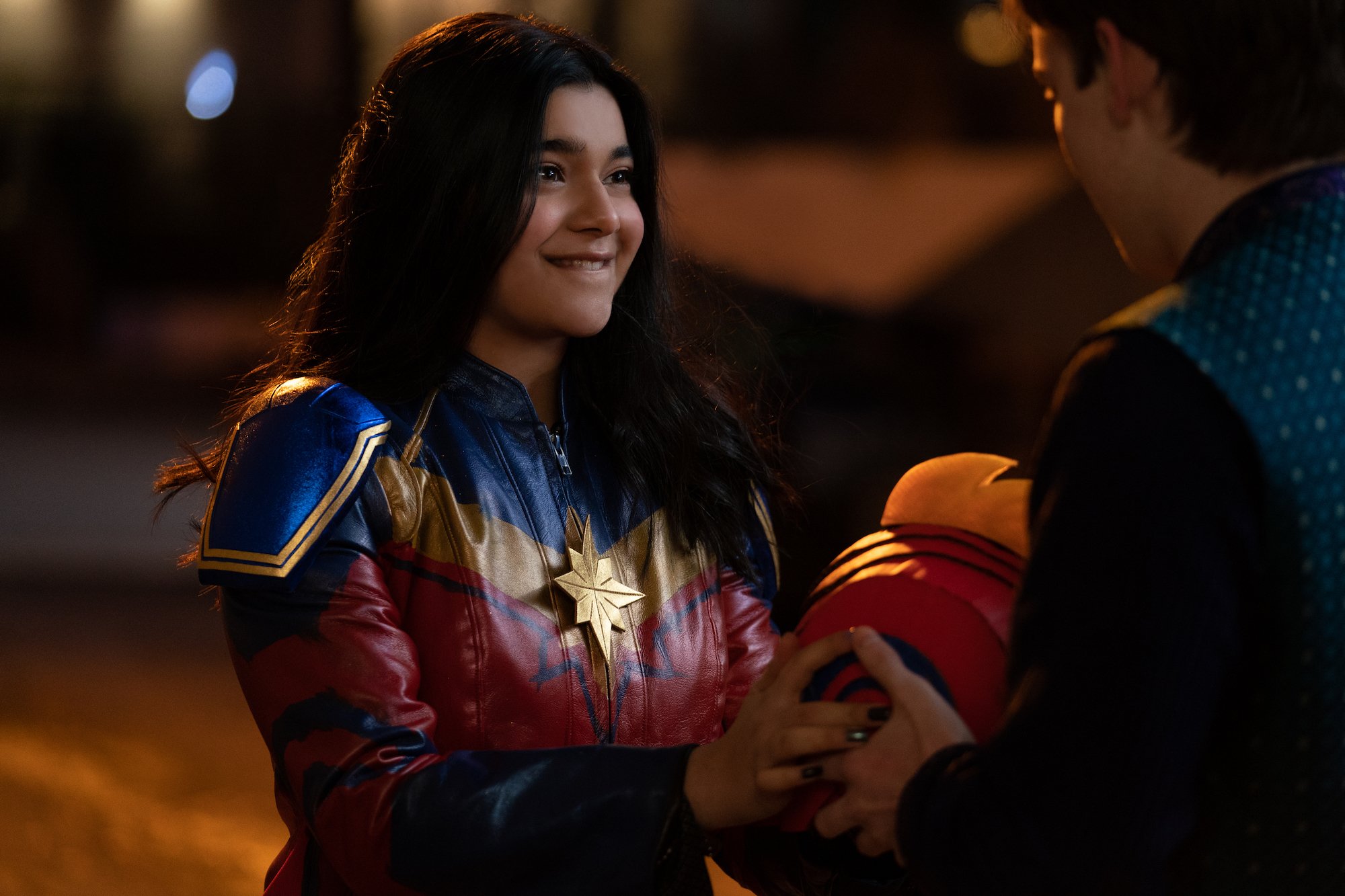
It needs to be said that neither the unwarranted review bombing of Ms. Marvel nor the outspoken praise from those who immediately came to the show’s defense, offer much in the way of determining its overall quality, especially in regards to its groundbreaking representation. The star-making performance from Iman Vellani makes Kamala Khan a welcome addition to the MCU, both as the franchise’s first Muslim superhero and as a huge fangirl who’s shocked to discover that her fantasies of joining the ranks of her mighty heroes may actually become a reality. In fact, Ms. Marvel is at its absolute best when exploring these two qualities of her character as they conflict with one another. Not only does this provide the series with an opportunity to go all-in with its respectful exploration of Pakistani culture and Islamic traditions, but the manner in which Kamala finds a well-tuned harmony between these clashing components of her personality makes her struggles as a teenager with still much to learn all the more identifiable, even for people who don’t come from the same background. If that’s not enough to draw viewers in from the first episode, then the show’s vibrant visual presentation, complete with colorful on-screen onomatopoeias well-suited for a comic book story, is certain to please.
That all being said, Ms. Marvel’s strengths in cultural relevance are as apparent as its shortcomings in structural cohesiveness. This is only the latest series to demonstrate many of the problems inherent to Marvel Studios only providing their small-screen entries with six episodes to introduce a character and establish a connection to the overarching narrative. Although it leaves ample room to develop its title character, the series still suffers from an over-reliance on exposition that is padded to comprise the first two-thirds of its run. The exploration of Kamala’s family history surely makes for an altogether unique way to explore the meaning of her powers, but the plot’s shift from Jersey City to Pakistan does much to distract the viewer from an already thinly sketched conflict involving a double dose of one-noted, forgettable adversaries in the form of the universe-jumping Clandestines and the Department of Damage Control. What begins with one of the most enticing premieres of the series on this list gradually devolves into a series of subplots that are never fully developed or properly resolved, amounting to a finale that is rather rushed despite the sense of satisfaction to be had when Kamala’s abilities and beliefs bring her community together to overpower a common threat. Watching her friends and family stand behind her and ultimately for her is an earnest sight to behold, but it’s that kind of street-level spirit and community heroism that Ms. Marvel could’ve used more of. Then again, most of Phase Four has been lacking in that department.
4. The Falcon and the Winter Soldier (2021)
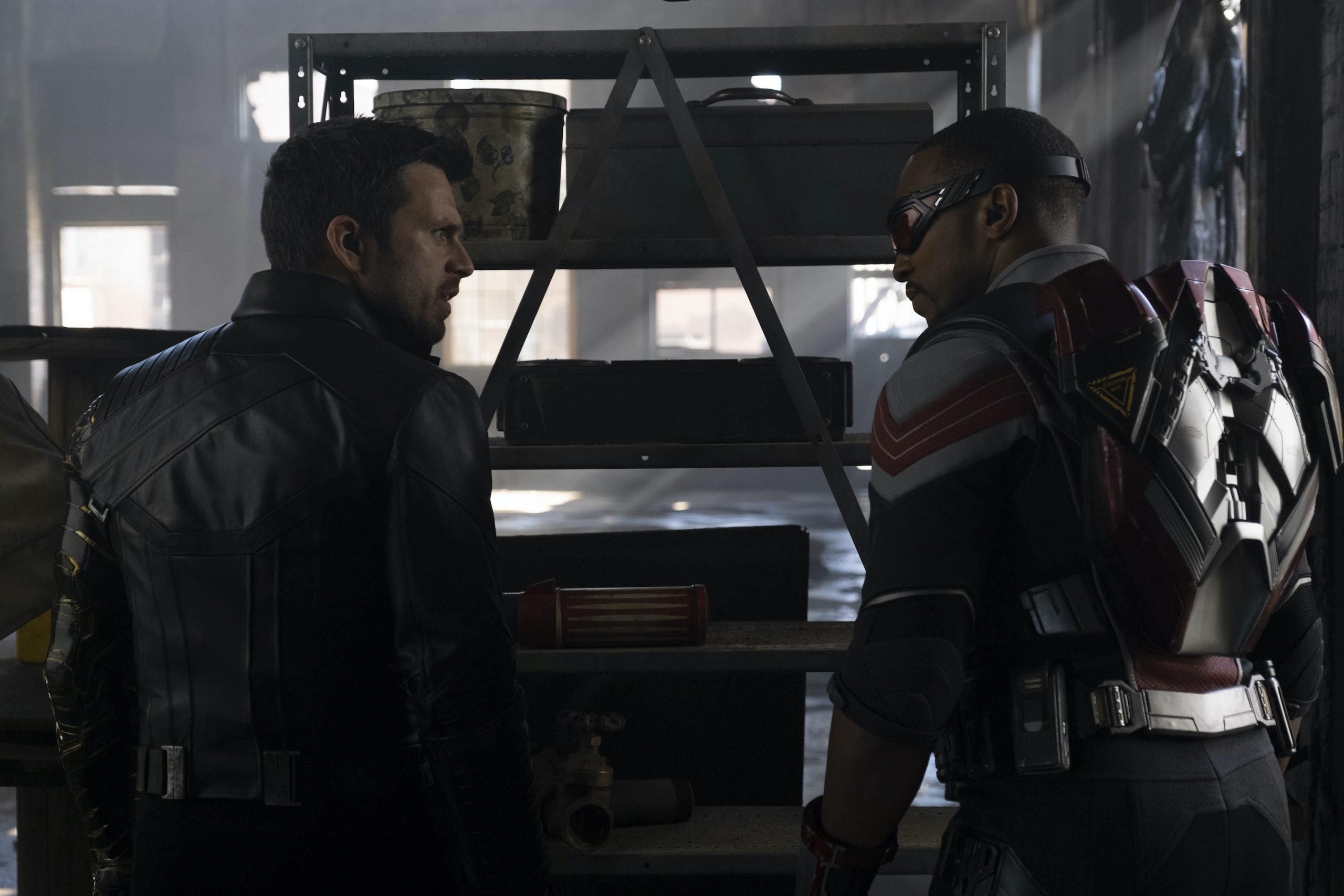
Fittingly, The Falcon and the Winter Soldier is the closest Marvel Studios has come to addressing serious sociopolitical issues within its properties since the previous Captain America films (2011-2016). The show’s discussions about trauma, radicalism, the United States government’s failure to protect the interests of African Americans, and society’s treatment of veterans is among some of the most worthy commentaries the MCU has to offer. That it explores these ideas through the lens of a superhero story ensures that the message is at the forefront and easily digestible. It’s such powerful material that it more than saves The Falcon and the Winter Soldier from the overabundance of characters and side stories that would otherwise leave it feeling extremely overstuffed. The show’s excess isn’t much of a deal breaker thanks to the chemistry of its two leads; Sam Wilson (Anthony Mackie) and Bucky Barnes (Sebastian Stan) pull off some impressive banter and action choreography as they take on a group of super soldier anti-nationalists known as the Flag Smashers while contending with the legacy that Steve Rogers left behind.
Although the series frequently struggles with its pacing and tone over its six episodes, it’s at its best when serving as a character study for the Falcon and the Winter Soldier. Particularly with Wilson do we get a compelling look at the choices he makes in becoming the new Captain America and what doing so means for his country’s centuries-long record of systemic racism. Where The Falcon and the Winter Soldier is brought down by a few pegs is in the characterization of its villains. On the one hand, regardless of how much fun it is to hate the government-appointed Captain America, John Walker (Wyatt Russell), his ignorance and brashness leave him more than a little one-noted. On the other hand, there’s a supreme lack of clarity to the Flag Smashers and their motivations. While there may be a few decent character moments between Wilson and their leader, Karli Morgenthau (Erin Kellyman), the group’s desires and threat level remain unclear to the point that it’s difficult to determine if they are extremist humanitarians or, as some in the show may put it, terrorists. It all amounts to a series that, despite a strong start and resolution for its two protagonists, takes us on quite the bumpy journey.
3. Hawkeye (2021)
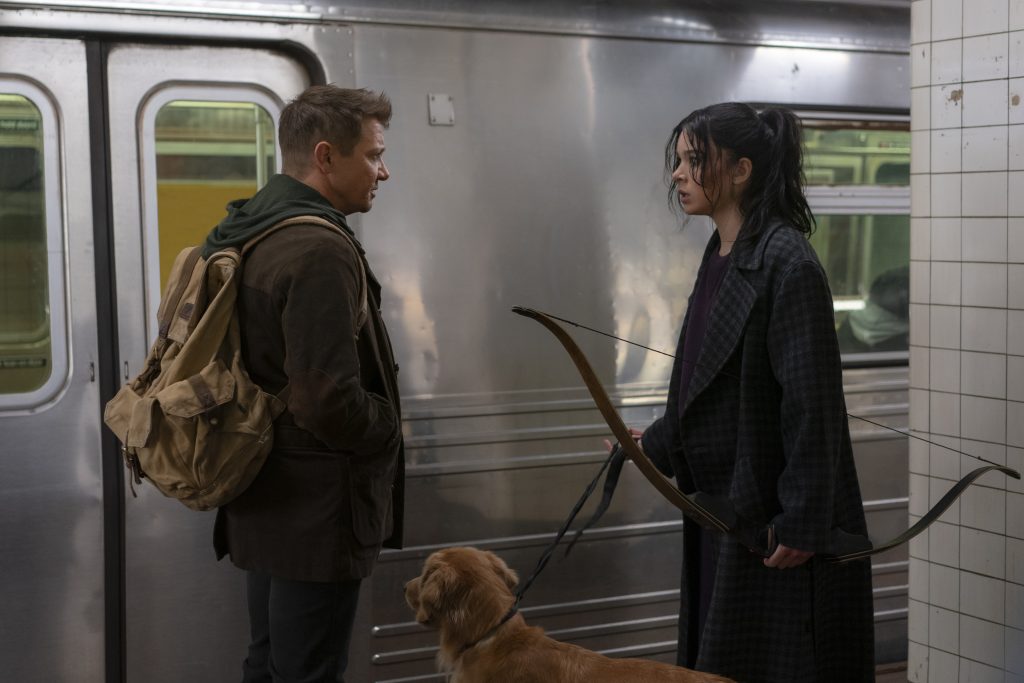
One of the strangest things about Hawkeye is that it simultaneously manages to be one of the most fun and entertaining stories we’ve gotten from Phase Four while also being one of the most inconsequential. Whether that’s a good or bad thing is ultimately at the discretion of the viewer, but something also of worth is that, of these series, it feels the truest to its comic book origins. Following young archer Kate Bishop (Hailee Steinfeld) as she teams up with the titular Avenger (Jeremy Renner) after the latter’s five-year history as the Ronin comes back to haunt him, the series is frequently elevated by the comedic buddy-cop chemistry between its two leads and even its Christmastime setting. With plenty of humorous diversions like Rogers: The Musical and the LARPers of Central Park to offset the vengeance-fueled villainy of the Tracksuit Mafia, it says a lot when Marvel can churn out something with surprisingly low stakes this deep into their universe-altering run, and do it well.
Rather than swinging for the fence as many other Phase Four entries have done to varying degrees of success, Hawkeye succeeds by not so much responding to the events of Endgame, but rather by picking out a minute, unexplored detail from the Phase Three epic and crafting an intriguing story around it in the present day. In the process, it provides some much-needed growth for Clint Barton that his previous appearances have gradually prepared him for. The show has some of the best pacing of Phase Four, as it is able to provide light-hearted, inventive action sequences while placing its many twists at the exact right moments. It may not arouse as many emotions as other MCU properties, but that’s entirely the point. Yet, regardless of whether or not the series marks our last time seeing Renner take up the bow and arrow, it manages to feel like a proper send-off for Barton. He deals with the loss of a friend, comes to terms with his shady past, makes it home for the holidays, and does it all while effectively passing the torch to the next generation, making Hawkeye the most uniformly complete series on this list.
2. Moon Knight (2022)
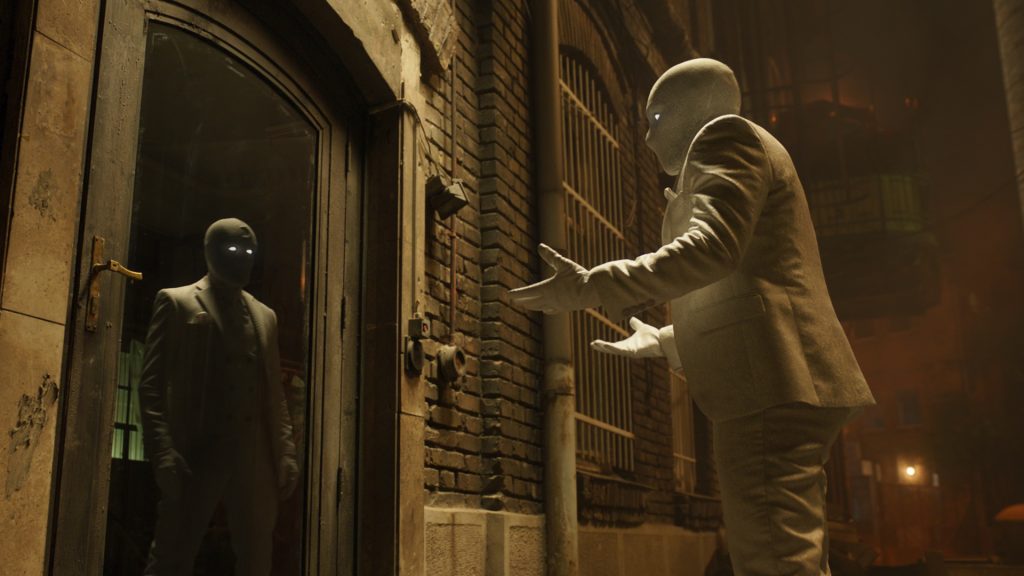
Moon Knight scales its way to silver primarily due to its noticeable lack of relation to the rest of the MCU. In fact, not since Guardians of the Galaxy (2014) has a Marvel Studios narrative felt so admirably standalone. It’s the first property from the franchise in a long while that has arrived without the burden of expectations weighing it down, and with that, it’s given a free pass to do whatever it wants, and it does exactly that by extending the MCU’s cultural reach into Egyptian mythology and culture. In a more surprising development, it also serves as one of the franchise’s more layered portrayals of mental illness. Moon Knight sees Oscar Isaac in fine form as mercenary Marc Spector, whose severe dissociative identity disorder fractures his mind between himself and another personality named Steven Grant. Given the two disparate personas at play, the series is able to pay more attention to its characters than many other Marvel projects have, especially in Phase Four, and does so while crafting a well-told story centered around Marc’s duties as an avatar for the Egyptian moon god Khonshu (voiced by F. Murray Abraham).
Moon Knight certainly displays some of the darkest and altogether weirdest storytelling from the MCU, and that’s a major point in its favor. Much of this has to do with Ethan Hawke’s sinister turn as Khonshu’s former avatar, Arthur Harrow, whose disillusionment leads him to release the Egyptian demon Ammit. Making it his mission to use her power to judge the souls of evildoers before they have a chance to commit evil, the series may not reach the philosophical heights of a Philip K. Dick story in its exploration of free will and causality, but it is still able to explore very high concept material through its inclusion of the supernatural. At the center of all the spookiness, however, is Isaac leading the way. It’s clear he’s having a blast pitting Steven’s quirky intelligence against Marc’s short-tempered physicality; his indelible chemistry with himself is what allows many of the series’ twists and reveals regarding Steven’s origins, and Marc’s choice to take up the mantle of the Moon Knight, to land as well as they do. Although the final episode feels rather rushed compared to the five that came before, it leaves plenty of room to take the character further, and it will be very interesting to see when, or even if, he makes his way into the continuity of the franchise.
1. WandaVision (2021)
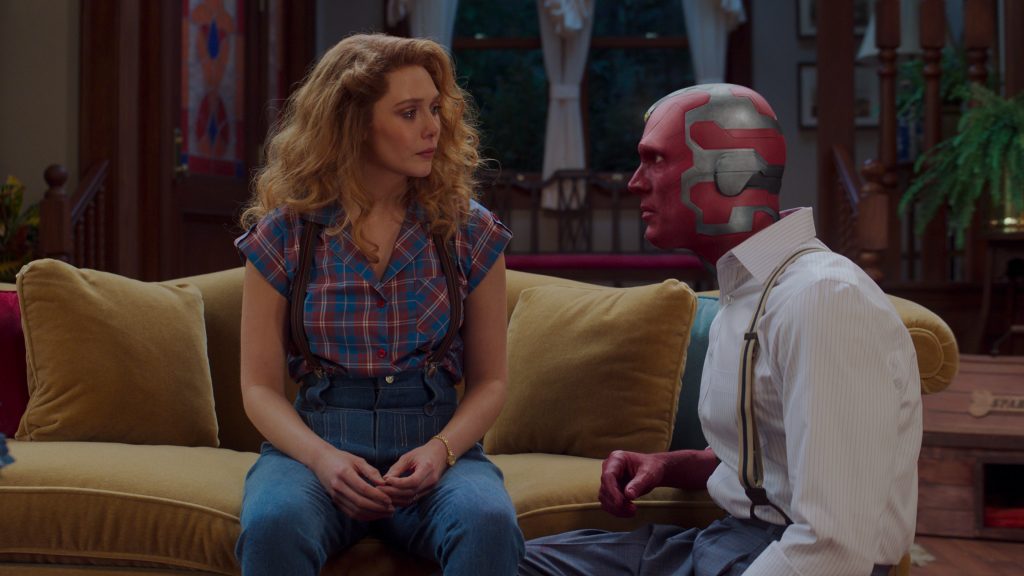
In hindsight, the success of WandaVision is as much of a tragedy off-screen as the one portrayed on-screen. For being the inaugural shift into Phase Four, as well as the first MCU series to premiere on Disney+, it’s quite sad to see many of the studio’s current theatrical releases unwilling to take the kinds of risks that these series have, and thus unable to deliver the same kind of satisfaction — except you, Spider-Man: No Way Home (2021), you’re good. Not only this, but the way in which Doctor Strange in the Multiverse of Madness (2022) all but reduced the character of Wanda Maximoff (Elizabeth Olsen) into a one-dimensional monomaniac does a great disservice to the stunning amount of depth this series provides to her romance with Vision (Paul Bettany). Playing around with heavy themes of loss and grief through the lens of television and the kind of escapism it provides, WandaVision is arguably the most narratively and stylistically original work the MCU has produced. It more than earns that distinction through the mystery it slowly and carefully builds around its artistic choices, and the ultimate payoff is nothing short of spectacular.
What’s perhaps so inviting about WandaVision is the way it calls upon its viewership, especially the most devoted of Marvel fans, to solve the puzzle before it’s solved for us. In what is easily Phase Four’s best example of “show don’t tell,” the series pulses with life due to the period details it absolutely nails in its recreation of television history through the decades, along with the subtle hints each decade leaves behind in its wake to let us know that something else is going on. It’s hard not to resist a show that has fun in its embrace of television as a storytelling medium while openly defying sitcom logic by digging deep into its characters. Olsen and Bettany have never been better as their respective characters than they are right here, with Olsen, in particular, giving her shining performance as she navigates Wanda’s rage, sorrow, and fate as the Scarlet Witch amidst a false reality. Regardless of how messy, open-ended, and ultimately meaningless her arc’s conclusion turns out to be — thanks again, Doctor Strange — no one can deny that there is truly nothing like WandaVision.

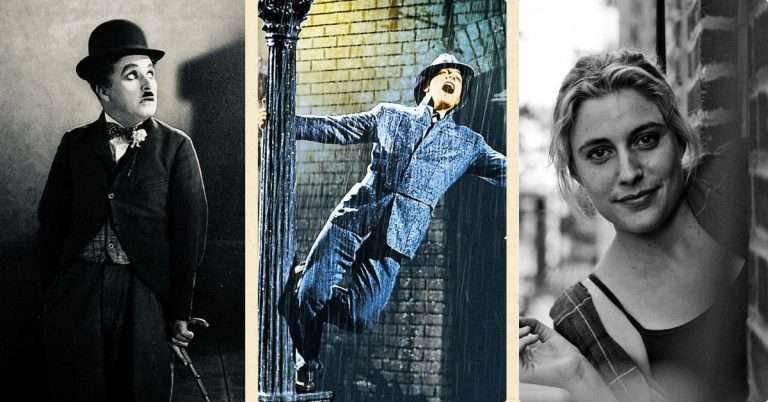
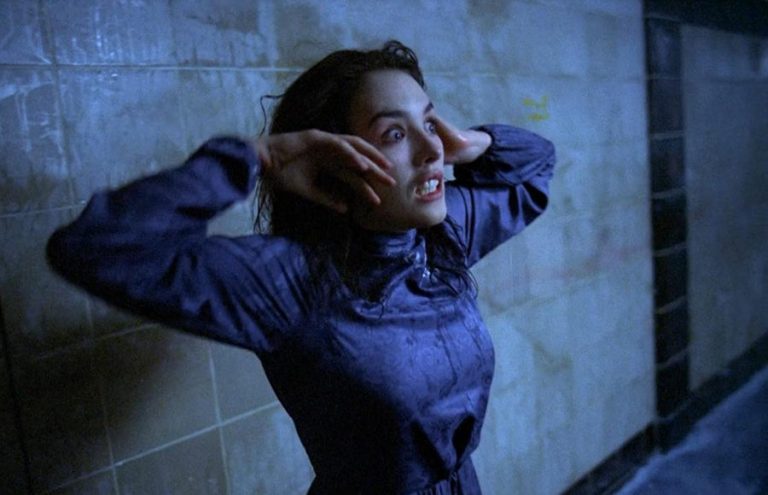
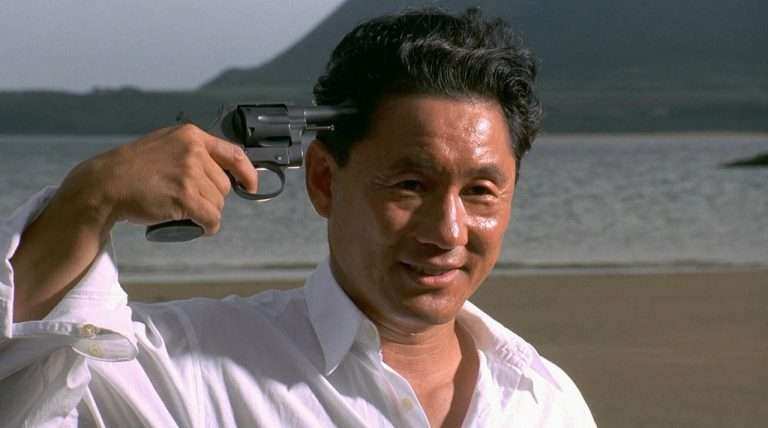
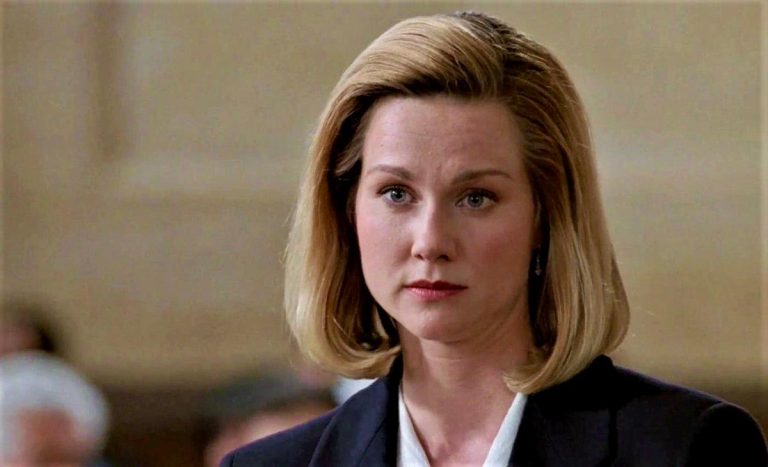
![Incredibles 2 [2018] : An Admirable Sequel to Its Classic Predecessor](https://79468c92.delivery.rocketcdn.me/wp-content/uploads/2018/06/thumb-1920-927008-768x402.jpg)
